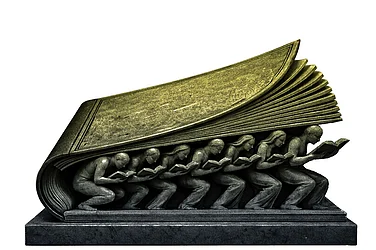Violation of the Delhi government's ban on plying of certain vehicles owing to the rise in pollution will attract a penalty of Rs 20,000.
Delhi government has decided to implement the anti-pollution curbs recommended by the Commission for Air Quality Management (CAQM), including a ban on non-BS VI diesel-run light motor vehicles.
The ban will affect three lakh diesel light motor vehicles in Delhi that are not BS-VI compliant, according to a report by Indian Express.
The Commission for Air Quality Management (CAQM) has invoked measures under Stage 4 of the Graded Response Action Plan (GRAP) with immediate effect.
Also Read: Delhi Pollution: Violation Of Vehicles Ban To Attract Rs 20,000 Fine
What are non-BS VI diesel-run vehicles?
While the governing body, Bharat Stage Emission Standards (BSES), regulates the output of pollutants from vehicles plying in the country, the Central Pollution Control Board (CPCB), sets the standards to regulate emissions from vehicles in India.
The first emission standard or norm, known as ‘India 2000’, was introduced in the year 2000. Following that, later, BS2 and BS3 were introduced in 2005 and 2010, respectively. While the first three emission norms were introduced at regular intervals, BS4 was introduced in 2017, after a gap of seven years.
The BS6 emission standard is the sixth iteration of the emission norm and comparatively, it’s a substantial leap in terms of reducing pollution compared to the outgoing BS4. This is also because the BS5 (BSV) has been skipped in an effort to move to better emission norms.
What are the BS-VI norms?
According to a Business Standard report, “to regulate the output of air pollutants from the internal combustion engine and spark-ignition engine equipment, including motor vehicles” the Centre has notified norms called BS or Bharat Stage emission standards.
The central government had made it compulsory for automakers to manufacture, sell and register only BS-VI (BS6) vehicles from 1 April 2020.
Under these norms, petrol vehicles have to be 25 per cent cleaner by decreasing NOx (Nitrogen Oxide) emissions from 80 mg/km to 60 mg/km.
A release issued by the CAQM said the measures were being taken “in the wake of unfavourable meteorological conditions anticipated to deteriorate the air quality of the NCR in the coming days” and that forecasts indicate that air quality in Delhi is likely to remain in the ‘severe’ or ‘severe plus’ category between November 3 to 5.
What did the Delhi government further direct?
The order issued by Delhi Transport Department also states that the BS-III petrol and BS-IV diesel light motor vehicle will be banned from plying in the areas under the jurisdiction of the NCT of Delhi.
“Violating these curbs can attract a fine of Rs 20,000 under the Motor Vehicles Act," said an official.
However, all CNG and electric trucks would be allowed to enter Delhi, according to an order by the Transport Department.
Diesel-operated medium and heavy goods vehicles registered in Delhi will not be allowed to ply in Delhi except those carrying essential commodities or providing essential services.
For commuters' convenience, public transport services will be augmented. The transport department will hire up to 1,000 private CNG contract carriage buses through DTC for 60 days, according to a statement.
It may be extended up to 90 days. In the first phase, 500 buses will be hired, it added. The plan will remain in force till further orders by the Commission for Air Quality Management.
Transport Minister Kailash Gahlot said, "Delhi is committed to taking all necessary steps to minimise the impact of growing air pollution in the city."
"It was important that supply of all essential commodities or services is not affected at any moment hence the vehicles being used for the same have been kept out of the ban. I urge all the citizens to support us in this and avoid any travel which is not necessary and use public transport as much as possible,” he said.
Delhi’s rising air pollution
Delhi’s air quality remained in the ‘severe’ category for the third day in a row. On Saturday morning, the overall air quality index (AQI) in the national capital was at 431, according to SAFAR, a forecasting agency under the Union Ministry of Earth Sciences.
Private schools have been instructed to remain shut by the AAP government.
The Supreme Court on Friday agreed to list for hearing on November 10 a PIL seeking fresh guidelines on stubble burning to curb rising air pollution in Delhi and the national capital region (NCR).
A bench comprising Chief Justice Uday Umesh Lalit and Justice Bela M Trivedi took note of the submissions of lawyer Shashank Shekhar Jha, who filed the PIL in his personal capacity, that the air pollution situation has worsened due to stubble burning in areas close to Delhi.
"Even normal people cannot walk in such a situation," the lawyer said, adding that "Air Quality Index (AQI) level has risen due to stubble burning." "List it on November 10," the CJI said.
What is GRAP?
The GRAP is a set of emergency measures effected to prevent the deterioration of air quality after it reaches a certain threshold.
It envisions a four-stage ad-hoc mechanism wherein Stage 1 of GRAP is activated when the AQI is in the ‘poor’ category (201 to 300), while the second, third and fourth stages are activated three days ahead of the AQI reaching the ‘very poor’ category (301 to 400), ‘severe’ category (401 to 450) and ‘severe +’ category (above 450) respectively.


























